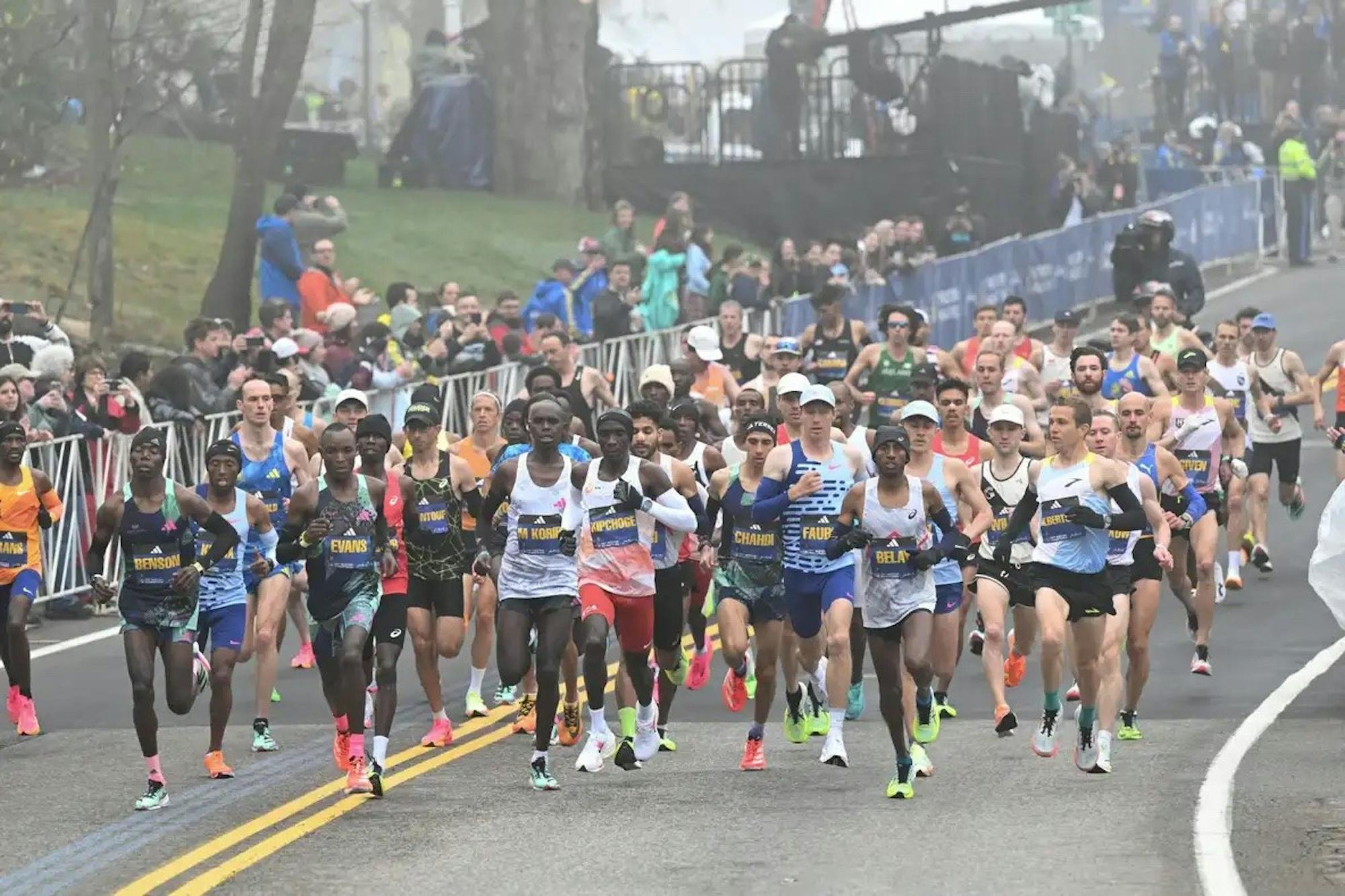Growing up in the suburbs of Boston, I often woke up on spring mornings to the sound of pattering feet on roads. In the early weeks of February, that was the noise of the seasoned-veteran runners who knew that training for a 26.2 mile race started at least two months out. As time crept into March, chattering voices joined the pattering feet as the hobby-jogging first-timers figured it would be a good idea for them to start training as well. By April, the streets filled with all sorts of folk running along the same route, with the same goal — racing the Boston Marathon.
On the third Monday of April, the entire greater Boston area shuts down. Boston’s dormant running culture comes alive on Patriots Day in a massive spectacle. People leave their masshole attitudes at home and swarm the streets to cheer on runners the entire day. In rain or shine — this year in rain — the city brings a unifying energy which propels runners throughout the course. Particularly this year — the 10th anniversary of the Boston Marathon Bombing — the city came together to recognize and celebrate the strength of its people.
Unfortunately, I was stuck watching the marathon on a television in Hanover before class. While I missed out on physically being a part of the spectacle, I still felt connected to the event. Being from Boston, I imagine I will always place this marathon on a pedestal — in fact I will likely run it some day — but this year was particularly exciting because of the individuals racing.
On the men’s side, the two individuals to keep watch for the title were the fastest marathoner ever, Eliud Kipchoge, and the defending champion, Evans Chebet — both of whom are from Kenya. Over the course of his career, Kipchoge has cemented himself as one of the best, if not the best men’s distance runner of all time. Kipchoge has won 15 of the 18 marathons he has competed in in his career, two of which were Olympic titles. On top of that, he is the first and only man to ever break two hours in the marathon — albeit in a controlled environment — and owns the official world record with a time of 2:01:09, which he ran at the Berlin Marathon in 2022. Boston, however, is a relatively hilly course, which benefits strength over pure endurance and leg speed.
Kipchoge’s biggest challenger going into the race was Evans Chebet. While Kipchoge has had sustained excellence over the past 10 years in the marathon, Chebet has had dramatic success in the past year, winning both the Boston and the New York marathons in 2022. Despite Kipchoge’s dominance in the sport, Chebet would be a formidable opponent in an exciting race.
Like in most marathons, through the halfway mark — which happens to be in my hometown — things remained uneventful. Kipchoge and Chebet were both locked into the lead pack looking strong and smooth, neither giving the other an advantage. As they continued to work their way into the race, other runners dropped off from the pack as fatigue hit their legs. Then, between the 30 kilometer mark and the 33 kilometer mark, Kipchoge’s legs began to fail him. Dropping 16 seconds back from the lead pack, it seemed like he was done for. Now, with his biggest competition out of the race, Chebet had the opportunity to defend his title. Battling it out against two other runners through 25 miles, Chebet looked strong. In the last mile, he ran away from the field and built a ten second gap between himself and the second place runner for the win.
While there was no world record holder or defending champion entered in the race this year for women, it was quite an exciting race to watch as well. Similarly to how the men’s race played, by the halfway mark there was little separation among the top runners. The women’s pack stuck together a bit longer, with little separation among the top ten by the 33 kilometer mark. Even with just three miles left in the race, the top six runners were all tightly packed and refusing to drop. There was a lone American woman in the top pack — Emma Bates — who was fighting to defend her home turf. Going into the last mile, Bates fell back a bit and the Kenyan runner Hellen Obiri made a surge. Putting 12 seconds between herself and the second place finisher, Obiri crossed the finish line in a time of 2:21:38. Notably, Bates was the top American, finishing in a time of 2:22:10 to earn fifth overall and hit the time standard for the 2024 Olympics.
While it is always exciting to watch the race at the front, the best part of the Boston Marathon is that, as a spectator, you get to keep watching runners cross the finish line throughout the day. This year, that meant watching Ben True ’08 — a former Dartmouth cross country runner who now runs professionally and was our volunteer coach this past fall. True, who was the top American runner at the New York Half Marathon a few weeks ago, ran a solid first half, with a split of 1:05:33. Over the back half — which includes the notorious “Heartbreak Hill” — True faded off the pace but maintained his composure to finish 23rd overall in a time of 2:16:06.
Even outside of the professional field, it is an incredible experience to watch the thousands of ordinary people cross the finish line throughout the day. Although my teammates and I like to poke fun at hobby-joggers, we hold a tremendous amount of respect for those who conquer the Boston Marathon.




